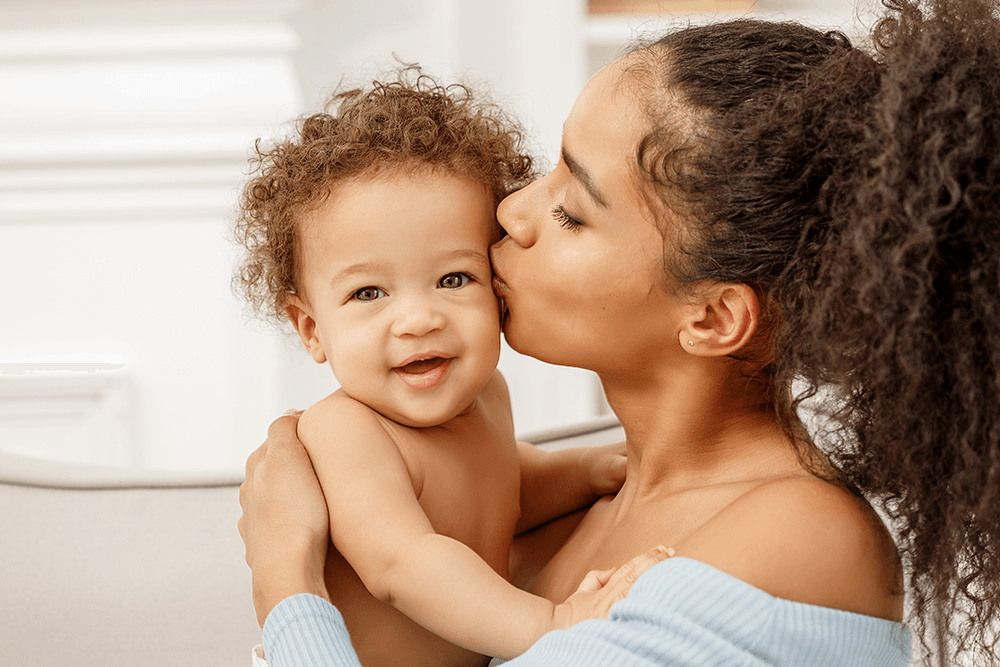
 Lifestyle
LifestyleHow to Prepare Your Home for a New Baby
5 Important Things to Do to Prepare Your Home for a New Baby
Bringing a new baby home is one of the most exciting and life-changing events for any family. As a pediatric nurse, I’ve seen firsthand how important it is to prepare your home in advance. A well-prepared home can create a safe, comfortable, and stress-free environment for both you and your little one.
Here are five essential steps to get your home baby-ready!
1. Create a Safe Sleeping Space
Your baby will spend a lot of time sleeping, so having a safe sleep environment is crucial. Here’s what you need to do:
- Choose a Safe Crib: Make sure the crib meets current safety standards, with slats no more than 2 3/8 inches apart and a firm, flat mattress.
- Use a Fitted Sheet: Avoid loose blankets, pillows, or stuffed animals in the crib to reduce the risk of suffocation.
- Position the Crib Correctly: Place it away from windows, blinds, and cords to prevent strangulation hazards.
- Room-Share, Don’t Bed-Share: The American Academy of Pediatrics (AAP) recommends keeping your baby’s crib in your room for at least the first six months to reduce the risk of Sudden Infant Death Syndrome (SIDS).
A safe sleep space ensures your baby is comfortable and lowers the risk of sleep-related accidents.
2. Babyproof Your Home
Even though newborns don’t start crawling immediately, it’s never too early to start babyproofing. Here are some key areas to address:
- Cover Electrical Outlets: Use outlet covers to prevent curious fingers from getting hurt.
- Anchor Heavy Furniture: Secure bookshelves, dressers, and TVs to the wall to prevent tip-over accidents.
- Use Safety Locks: Install cabinet and drawer locks, especially in the kitchen and bathroom, to keep hazardous items out of reach.
- Secure Stairs and Doorways: Use baby gates to block off dangerous areas.
- Check for Choking Hazards: Small items, coins, and loose buttons should be kept out of reach.
Babyproofing early means you won’t have to scramble once your baby starts moving around.
3. Stock Up on Baby Essentials
Newborns need a surprising number of supplies, and having everything ready ahead of time can make those first few weeks much smoother. Here’s a checklist of must-haves:
- Diapers and Wipes: Stock up on both newborn and size 1 diapers.
- Clothing: Have plenty of onesies, sleepers, socks, and hats.
- Feeding Supplies:
- If breastfeeding: A good breast pump, nursing bras, and nipple cream.
- If formula feeding: Bottles, formula, and a bottle sterilizer.
- Bathing Essentials: Baby-friendly soap, a soft towel, and a baby bathtub.
- First Aid and Grooming:
- Baby thermometer
- Nail clippers
- Saline drops and a bulb syringe for nasal congestion
- Infant pain reliever (approved by your pediatrician)
Having all these essentials ready ensures that you’re well-prepared when your baby arrives.
4. Set Up a Feeding and Changing Station
Newborns need frequent feedings and diaper changes, so having dedicated spaces for these tasks can make life easier.
Feeding Station
- Keep a comfortable chair with back support.
- Have burp cloths and bibs within reach.
- If bottle-feeding, store sterilized bottles and formula in an easy-to-access location.
Diaper Changing Station
- Use a sturdy changing table or a changing pad on a safe surface.
- Keep diapers, wipes, and diaper cream within arm’s reach.
- Have a diaper pail or trash can nearby to dispose of used diapers.
A well-organized station helps make diaper changes and feedings stress-free, especially during nighttime wake-ups.
5. Plan for a Smooth Transition
Preparing your home isn’t just about stocking up on baby gear—it’s also about making sure your household is ready for the big change. Here’s how:
- Clean and Declutter: A tidy home can help reduce stress when caring for a newborn.
- Prepare Freezer Meals: Cooking ahead of time ensures you have nutritious meals without extra effort.
- Set Up Help: Arrange for family or friends to help with errands, cleaning, or babysitting if needed.
- Create a Routine: Establishing a basic daily routine can help ease the transition into parenthood.
- Take Care of Yourself: Make sure you’re well-rested, hydrated, and mentally prepared for this new chapter.
A smooth transition will help you focus on bonding with your baby and adjusting to parenthood.
Final Thoughts
Welcoming a new baby into your home is an exciting journey, but preparation is key. By creating a safe sleep environment, babyproofing your home, stocking up on essentials, setting up dedicated spaces, and planning for a smooth transition, you’ll be ready to embrace this new adventure with confidence.
Taking these steps ahead of time will give you peace of mind and help you enjoy every precious moment with your little one!
We're Your Storage Solution!
Storage Rentals of America is your convenient self-storage solution. So come into our office or give our storage experts a call at 1-800-457-5678. Our call center is available 7 days a week and can help determine which storage unit size best fits your storage needs.



